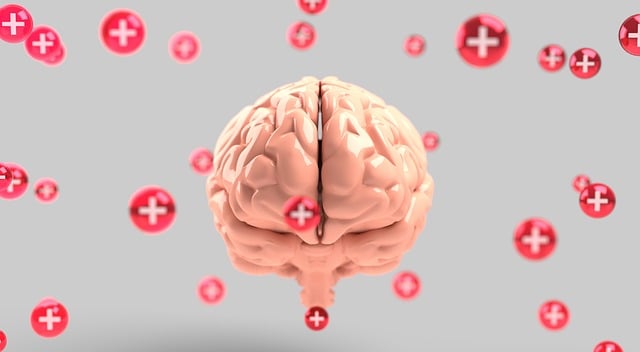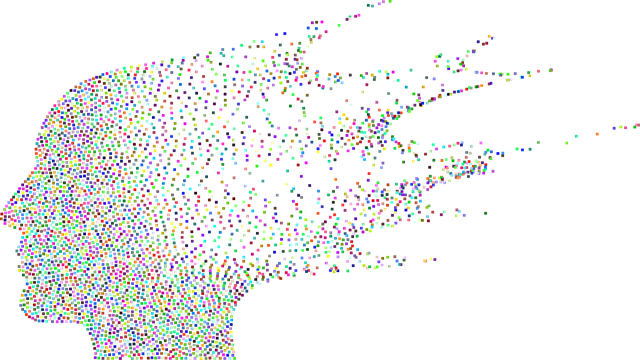The media's portrayal of bipolar disorder significantly influences young adults' understanding and willingness to seek therapy. Current depictions often fail to represent the complexities of the condition, leading to misinformation and stigma. However, mental wellness coaching programs are emerging as a positive change by promoting cultural sensitivity and nuanced storytelling. These initiatives aim to encourage open conversations, reduce stigma, and improve access to appropriate support for young adults dealing with bipolar disorder through responsible media representation. By highlighting recovery stories, incorporating conflict resolution techniques, and emphasizing burnout prevention for professionals, these programs can foster empathy, accurate portrayals, and proactive mental health care.
Mental illness representation in media has long been a topic of debate, with portrayals often perpetuating harmful stereotypes. This article explores the current landscape of mental health depiction in the media and its significant impact on young adults struggling with bipolar disorder. We delve into effective solutions and strategies to foster more accurate, empathetic, and therapeutic representations, aiming to enhance understanding and support for those seeking therapy for young adults bipolar disorder.
- Understanding Mental Illness Representation in Media: The Current Landscape
- The Impact of Media Portrayal on Young Adults with Bipolar Disorder
- Effective Solutions and Strategies for Positive Change
Understanding Mental Illness Representation in Media: The Current Landscape

The current media landscape often presents a distorted view of mental illness, primarily through stereotypical portrayals and limited narratives. This representation significantly impacts public understanding and attitudes towards individuals living with conditions like bipolar disorder. Therapy for young adults suffering from such disorders is often portrayed inadequately or not at all, leading to misinformed perceptions and potential barriers to help-seeking behaviors.
Mental wellness coaching programs have emerged as a positive development in addressing these challenges. By incorporating cultural sensitivity in mental healthcare practice, these programs aim to create more nuanced and accurate portrayals of mental health issues. Promoting emotional healing processes through media representation can encourage open conversations, reduce stigma, and foster support for those dealing with bipolar disorder and other mental health challenges.
The Impact of Media Portrayal on Young Adults with Bipolar Disorder

The media’s portrayal of mental illness significantly influences young adults living with bipolar disorder. Often, stigmatizing and inaccurate depictions in films, TV shows, and social media can lead to misinformed perceptions, fostering stigma and discrimination. This, in turn, may discourage young adults from seeking therapy for bipolar disorder or openly discussing their symptoms. When media portrays individuals with bipolar disorder as unpredictable or violent, it can create a sense of fear and misunderstanding among the general public, further isolating those who struggle with this illness.
However, there is a growing movement towards more responsible and nuanced representations. Shows and stories that showcase the complexities of bipolar disorder, highlight recovery journeys, and emphasize the importance of mental wellness journaling exercises and healthcare provider cultural competency training can significantly help young adults. Such positive portrayals offer a sense of validation, encourage them to embrace their experiences, and motivate them to seek appropriate support, ultimately leading to improved access to confidence-boosting therapeutic options.
Effective Solutions and Strategies for Positive Change

Positive change in media representation of mental illness requires a multifaceted approach. One effective strategy is to promote and highlight stories of recovery and resilience, showcasing the journey of individuals managing conditions like bipolar disorder through therapy for young adults. This shift can help reduce stigma and foster empathy among viewers.
Additionally, incorporating conflict resolution techniques within storytelling can offer nuanced portrayals of mental health struggles. By depicting characters effectively navigating challenges and resolving conflicts, media can provide valuable insights into coping mechanisms and promote better understanding. Furthermore, burnout prevention strategies for mental health professionals should be incorporated to ensure accurate and sustainable representation. Risk management planning is key to showcasing a supportive environment where help-seeking behaviors are encouraged, mirroring the importance of proactive mental health care in real life.
Mental illness representation in media is a powerful tool that can either perpetuate stigma or foster understanding. As we’ve seen, current portrayals often fall short, particularly when it comes to conditions like bipolar disorder. However, by implementing effective strategies such as increased diversity and accuracy in storytelling, involving individuals with lived experiences, and promoting open dialogue, the media industry can significantly contribute to positive change. Encouraging therapy for young adults with bipolar disorder, among other mental health initiatives, is crucial in navigating this challenge and creating a more inclusive, empathetic society. Together, we can transform the way mental illness is represented and experienced in our shared narrative.











